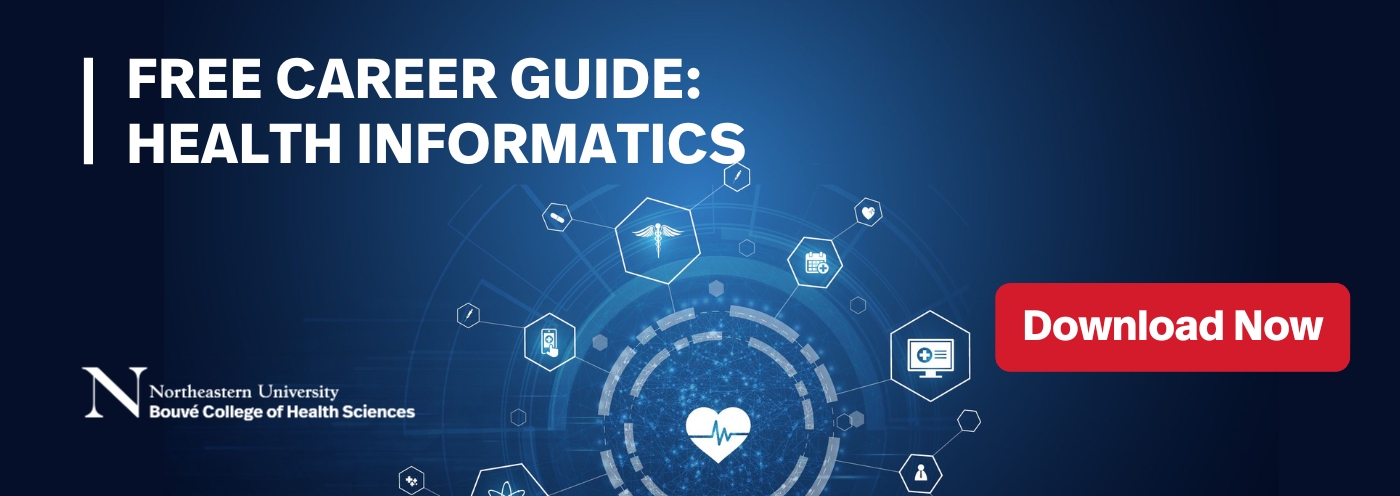In recent years, the medical industry has been adopting technology to improve patient care and maximize efficiency. One such technology that’s gained widespread acceptance throughout healthcare is electronic health record (EHR) systems. These systems have become integral to the medical industry, and have increased the accessibility of health information to both patients and providers.
Here’s an overview of seven key benefits of EHR systems and how they’re revolutionizing the healthcare industry.
What Are EHR Systems?
EHR systems are comprehensive records of a patient’s medical history, including details such as demographics, test results, and prescribed medications. These records help healthcare providers make informed decisions about patient care and ensure that all necessary information is readily available.
“The briefest definition is that it’s the digital version of a patient’s paper chart and medical history,” explains Jay Spitulnik, associate teaching professor and director of Northeastern University’s Master of Science in Health Informatics at Bouvé College of Health Sciences and Khoury College of Computer Sciences. “EHR systems are the foundation of everything that you do in the informatics world.”
Advance Your Career in an Emerging Field
Learn how health informatics graduates use information technology to improve healthcare delivery and outcomes.
According to Spitulnik, these systems have three key functions:
- Identify and maintain a patient record: Unlike the traditional method of keeping records in written format, EHRs offer a digitized platform that’s more efficient, convenient, and secure.
- Manage patient demographics: By providing a centralized location for patient demographic information, EHRs allow doctors to quickly access valuable patient information.
- Manage problem lists: EHR systems allow healthcare providers to manage problem lists—documents outlining health concerns—for individual patients, as well as broader systems within a specialty or health system.
EHR adoption wasn’t widespread until the HITECH act, which was enacted in 2009 to boost the acceptance and advancement of health information technology. In 2016, the 21st Century Cures Act took things a step further.
“The 21st Century Cures Act established an expected norm of sharing electronic health information,” explains Spitulnik. “This eliminated information blocking—interference with the access, exchange, or use of health information—and required transparency to patients and caregivers.”
These policies, plus overall recognition of EHR systems’ benefits, have resulted in nearly 90 percent of office-based physicians using EHR or electronic medical record (EMR) systems. As a result, there’s a growing demand for individuals who are comfortable working with these systems. In fact, the global EHR market is expected to increase to $47 billion by 2027, up from $29 billion in 2020. For this reason, prospective health informatics professionals should ensure they’re familiar with EHR systems and their benefits.
7 Benefits of EHR Systems
While EHR systems’ prevalence in the healthcare system is well-established, it’s important to note the aid this health informatics tool provides to the industry. Here are the top seven benefits of leveraging EHR systems in healthcare.
1. Improves Quality of Care
EHR systems provide quick and easy access to patient information, which can help healthcare providers make better-informed decisions about patient care.
Here are a few ways EHRs improve patient outcomes:
- Checks for medication conflicts: Since EHRs track patients’ medications and allergies, it also has the ability to check for potential issues or conflicts with newly prescribed medications.
- Improves emergency care: EHRs provide immediately accessible data pertaining to critical information, such as a life-threatening allergy, to emergency staff. This allows them to provide the right care to their patients—even if they’re unconscious.
- Illuminates safety risks: EHRs help healthcare providers avoid potentially serious problems by alerting them to possible safety issues, ultimately leading to improved patient outcomes.
According to the Kaiser Family Foundation, approximately 45 percent of patients have reported that quality of care has increased as a result of EHR system adoption, with only 6 percent reporting a decline in quality of care.
2. Increases Efficiency
One of the most notable benefits of EHR systems is their ability to boost organizational efficiency in healthcare. Not only that, there’s significant evidence that suggests EHRs have provided a positive return on investment.
Some common administrative processes that EHRs can help streamline include:
- Appointment scheduling: By automating the scheduling process, EHRs help prevent common mistakes (e.g., double booking), while offering real-time scheduling updates that allow providers to reschedule appointments or send reminders to patients.
- Billing: EHRs can reduce the chances of missed or delayed payments by automatically generating and sending bills to patients, and identifying discrepancies such as duplicate charges or incorrect billing codes.
- Patient communication: In addition to allowing patients to access their medical information much more easily, EHRs offer messaging platforms that allow patients to ask their providers questions through a secure and confidential method.
These improvements can help healthcare providers manage their workload efficiently. They also prevent many human errors, such as indecipherable handwriting or misplaced paperwork.
3. Boosts Patient Engagement
EHRs foster a collaborative environment between patients and healthcare providers. By creating more transparency for patients, EHRs have allowed patients to have more of a say in their healthcare. This secure access to health information has encouraged more people to take control of their health and actively engage with their healthcare providers.
“One of the things that research has shown is that the more information you make available to the patients, the more engaged they become,” explains Spitulnik.
This is particularly true when considering chronic illnesses that require ongoing treatment, which impact approximately 60 percent of American adults. EHR systems improve providers’ ability to form long-term relationships with patients and collaborate with them to find solutions.
4. Reduces Medication Errors
Easy access to patients’ medical history, allergies, and existing medications helps prevent doctors from prescribing medications that could harm patients or conflict with existing prescriptions. This improves patient safety, and ensures that doctors are equipped with the information they need to provide accurate recommendations.
EHR systems also help prevent medication errors by providing medication alerts and reminders to healthcare providers and enabling automatic medication prescribing. Medical errors are expensive to the medical industry, costing approximately $20 billion each year. EHRs can help reduce the costs of these errors, especially since one of the leading causes of medical inaccuracies is communication errors.
5. Enhances Data Security
EHR systems offer better data security than paper-based systems, as data is stored in secure, encrypted formats that can only be accessed by authorized personnel. Additionally, EHRs facilitate secure sharing of patient data among authorized healthcare providers, allowing for seamless communication between teams and minimizing the risk of data breaches. These systems also conduct regular backups and data recovery measures, which ensures patient information is accessible and protected at all times.
6. Enhances Data Accessibility
The accessibility of EHR systems is one of the primary reasons for their widespread adoption. They enhance accessibility for both healthcare providers and patients, allowing them to easily access medical records from any authorized device.
While both groups benefit from this enhanced data accessibility, the amount of information that’s available to them differs.
- Healthcare providers: EHR systems allow healthcare providers to access patient data from anywhere with an internet connection, making it easier to provide care to patients in different locations.
- Patients: Due to the HITECH act, patients now have the right to access their healthcare information via a digital copy of their health data through a secure and confidential EHR system.
As a result, the accessibility of EHR systems gives patients more control over their healthcare. “When done right, [EHR systems] make information more accessible to patients,” says Spitulnik. “It allows patients and their caregivers to be directly involved in the decision-making about their care.”
7. Saves Money
The cost-savings benefit of EHR systems is debated, since EHR systems are fairly expensive to maintain. However, there are several aspects of EHR systems that save money long-term.
“Let’s say that you’ve been in a facility where you’ve had all kinds of diagnostic imaging done, such as CAT scans, x-rays, and MRIs,” says Spitulnik. “It’s a lot less expensive to store and transmit electronically than having all kinds of CDs and DVDs in your office that you then have to copy to transmit to another provider.”
Other ways EHR systems can save healthcare providers money include:
- Reducing the need for paper-based systems
- Decreasing time spent on administrative tasks
- Minimizing medical errors and inefficiencies
“One of the biggest cost saving pieces is that everything is much more shareable than hard copies,” explains Spitulnik.
The Need for More Health Informatics Workers
The increased adoption of EHR systems has resulted in a growing demand for health informatics career paths. According to the Bureau of Labor Statistics, medical records specialist jobs are expected to grow at a rate of 17 percent by 2031—much faster than the national average.
Unsurprisingly, as the demand for informatics professionals increases the value of an informatics degree has risen accordingly.
“Up until 2007, the people who were hired to do informatics work graduated with MPH degrees, computer science degrees, and management degrees,” says Spitulnik. “As more and more colleges have created programs to specifically train informatics professionals, the demand for people who have an informatics degree—rather than some other degree—has blossomed.”
For this reason, prospective health informatics professionals should consider applying for a program that pertains specifically to health informatics—such as Northeastern’s MS in Health Informatics.
Begin Your Health Informatics Journey
Are you interested in a career path working with EHR systems and other advancing data collection technology? Health informatics is an excellent career path that allows you to work with these systems while improving patient outcomes.
Finding the right program is the first step to beginning your informatics career. For example, Northeastern’s MS in Health Informatics is a great choice due to its emphasis on real-world learning.
“Everything that we do in our program is geared toward the practical application of all the competencies associated with being an informatics professional,” says Spitulnik. “Our courses are all taught by people who are senior-level practitioners in the field.”
Ready to take the next steps in your health informatics career? Check out Northeastern’s Master of Science in Health Informatics, which will equip you with the skills you need to succeed in this field.







Related Articles
4 Pressing Global Health Problems We Face Today
Global Health Careers: How Can I Make a Difference?
Compliance Specialists: Who They Are and What They Earn